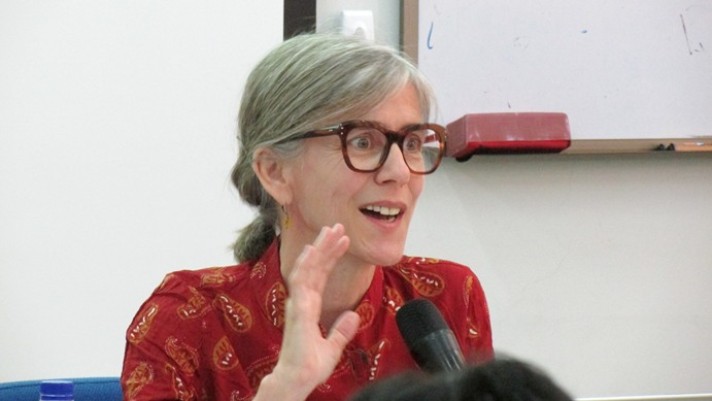
Leiden-based senior researcher at the Royal Netherlands Institute of Southeast Asian Caribbean Studies (KITLV), Marieke Bloembergen, on Thursday (20/4) gave a public lecture on India’s scientific networks, religion and spiritual movements. The public lecture was held by the Department of History, FIB UGM, in Meeting Room I, Purbatjaraka Building, FIB UGM. This public lecture has the theme “Beyond A Dutch Empire, Beyond Indonesia? : Scholarly and Religious Networks, Spiritual Movement and Moral Geographies Of Greater India Across Decolonization, 1920’s-1980’s” and was attended by FIB students from various strata.
Marieke explained about a network of spiritual ideas and movements that developed in Asia – outside the colonial rule of the Netherlands – and how these ideas influenced the vassal Dutch colonial countries, including the Dutch East Indies. The network deals with religious and spiritual ideas originating in India – especially Buddhist revivalists. Spiritual movement is not defined as ‘movement’ as in social movements, but rather in the realm of thought.
The interesting thing is, according to Marieke, after colonialism was over there were questions that arose regarding India’s spiritual network that spread to Asia. He then went on to say that the scientists, teachers, and spiritual seekers who followed Tagore’s footsteps in the 1920s seemed to have a hard time grasping the spirit and essence of his teachings. Because after the colonial era, many ideas emerged to restore their post-colonial self-identity. At its peak in the 1960s and 70s, the search effort to capture the history or essence of culture, spirituality, and religion that was ‘typical’ Asia was carried out on a massive and massive scale.
